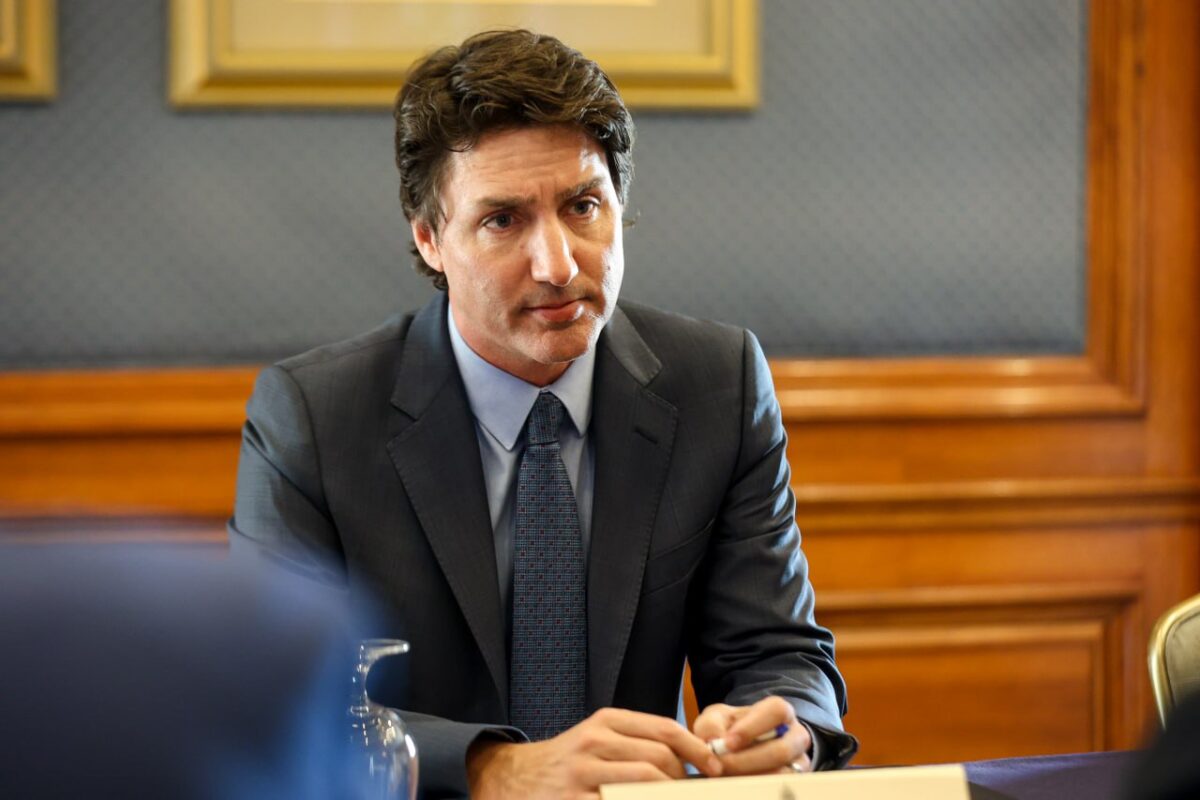The Canadian government is enabling geopolitical tensions that could lead to World War III. They’ve encouraged Israel’s bid to ignite a regional war, promoted the NATO proxy war in Ukraine, dispatched forces towards China and increased military spending to counter China and Russia.
In innumerable ways the Trudeau government has enabled Israel’s holocaust in Gaza. Ottawa responded to Israel’s slaughter by ramping up arms sales while simultaneously maintaining bilateral military ties and turning a blind eye to Canadians illegally assisting the Israeli military.
Ottawa refused to condemn Israel’s assassinations of Iranian officials on April 1 even though the adjacent Canadian embassy building was damaged when Israel blew up part of Tehran’s diplomatic compound in Damascus. While staying mum on Israel’s flagrant violation of international law, the Trudeau government immediately condemned Iran’s response. They’ve also discussed imposing more sanctions on that country.
A great deal of Israel’s shadow war with Iran, which Benjamin Netanyahu seeks to have the US fight, has taken place in Syria. There are a few thousand US and Russia troops in that country. Even though they are on different sides, Israel and Russia have thus far largely avoided fighting each other. If fighting between Israel-Iran grows, Russian forces could be drawn into skirmishes with Israeli forces in Syria. Already in a proxy war with Russia in Ukraine, the US would likely then end up in direct conflict with the world’s other main nuclear power.
The Trudeau government has also aggressively promoted the NATO proxy war. On Monday the federal government announced that Canada was giving Ukraine another 450 drones and Tuesday’s federal budget included over $4 billion worth of new support to that country. The number of Canadian troops on Russia’s border with Latvia keeps growing along with NATO forces across Eastern Europe. Two weeks after the French president suggested sending ground troops to Ukraine, French Prime Minister Gabriel Attal and Justin Trudeau released a joint statement noting, “we will continue our financial, humanitarian, military, and diplomatic support to Ukraine for as long as it takes.”
On the other side, Moscow’s position seems to be hardening. Russian officials are blaming Ukraine for the recent attack on a Moscow theatre that left more than 130 dead and they no longer call the war a “special military operation”. Reportedly, the Russian military is 15 per cent bigger than before invading two years ago.
In what’s turning into another powder keg, tensions in the South China Sea are growing. The Philippines, Japan and Australia have joined a number of US instigated military arrangements, creating the basis for what may become a sort of Asian NATO.
Last weekend HMCS Montreal was dispatched from Halifax to join a growing number of Canadian military assets as part of the US coalition targeting China. At the same time the Public Inquiry into Foreign Interference has spurred weeks of anti-China headlines.
Canadian officials openly state that we must bolster military spending to counter China and Russia. Last week’s defence policy statement mentions those two countries over 40 times. The front page of Monday’s Globe and Mail declared “Military chief touts greater focus on Arctic amid moves by China, Russia” while the next day defence minister Bill Blair echoed the chief of the defence staff with a message to X noting, “The Arctic is warming at four times the global average and becoming more accessible, all while Russia and China are building up their capabilities. Through Our North, Strong and Free, we’re making generational investments to protect Canadian sovereignty.”
From Beijing and Moscow’s perspective, increased Canadian military spending is threatening escalation since the US/Israel/Japan/NATO axis already spends far more on war than them.
Canada may be a modest player in the world’s main flashpoints. But it need not stoke tensions. And if it were interested in curtailing tensions it would join countries in the Global South promoting peace and diplomacy, but that would require challenging domestic lobbies and Washington. Unfortunately, there’s little indication the current government is interested or even capable of doing that.



